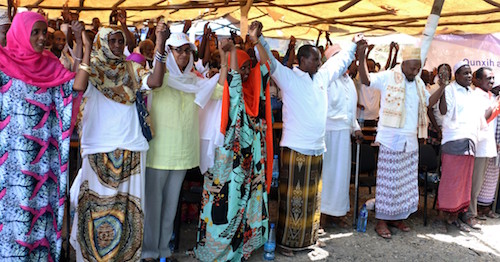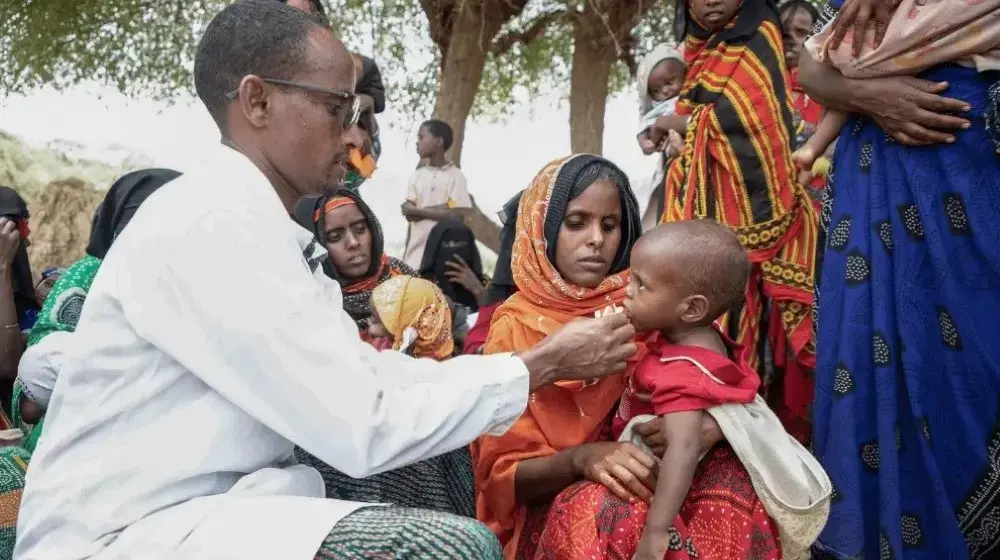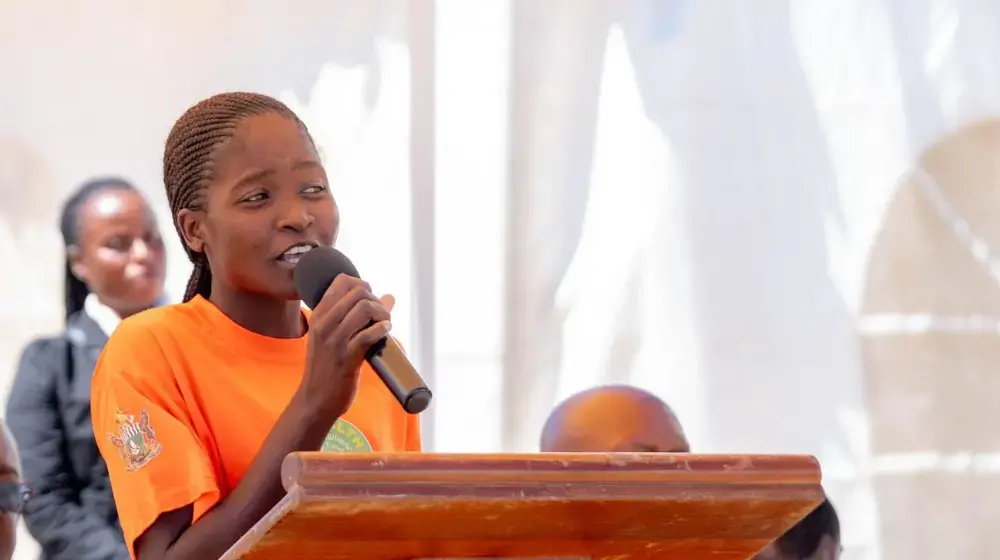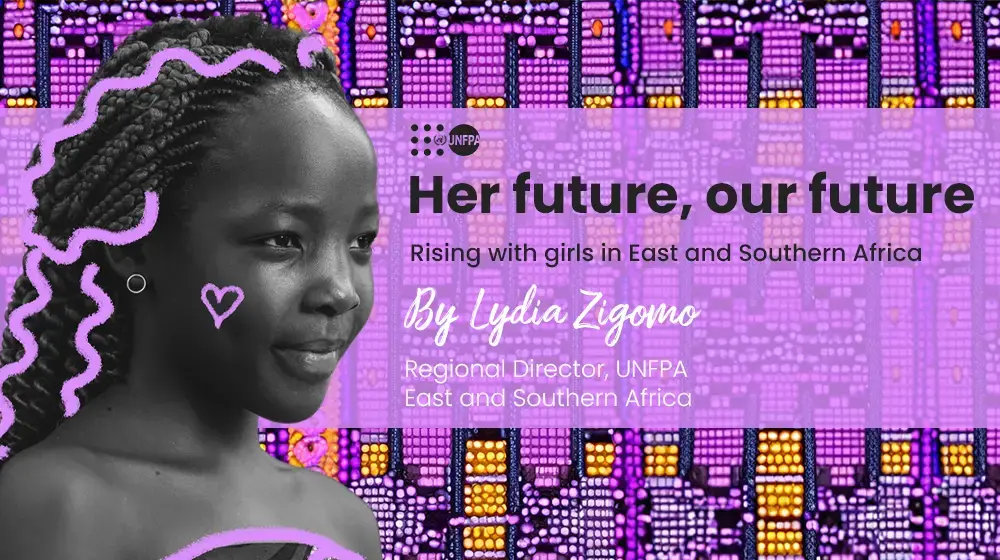AFAMBO DISTRICT, Afar Region, Ethiopia: “We educate each other on the harmful effects of child marriage and female genital mutilation (FGM) and on sparing ourselves the ordeals our older sisters went through. We were very ignorant before. The discussions have opened our eyes.”
Clad in the colourful traditional dress of Afar women, Kediga Ali, 15, was speaking about how a UNFPA-supported initiative had given her and her peers renewed hope for their future. She was one of the participants at a ceremony where communities in three Kebeles (localities) in the Afambo Woreda (District) in the Afar Region publicly declared abandonment of child marriage and female genital mutilation (FGM).
Kediga was pleased to be part of the social movement that did away with these two practices – the first in the Afar Region to do so. And she was proud that the ceremony took place in the compound of her school. Government officials, clan and religious leaders, representatives of law enforcement bodies, and various community members from the district had gathered here to celebrate the success.
Kediga has been a facilitator of the unmarried girls’ club in her school since it started just over three years ago. The unmarried girls’ club is one component of the Programme on the Integrated Abandonment of Child Marriage and FGM, which UNFPA has been supporting in seven localities in the Afambo Woreda for the past three years, with funding from the UN Association in Sweden.
We were very ignorant before. The discussions have opened our eyes. - Kediga Ali, 15
Every fortnight, 30 female students come together to discuss the harmful effects of child marriage and FGM and how they can contribute to the fight against these harmful practices. They use every social occasion outside of school to continue their discussions.

Saying 'no more' to child marriage and FGM
This effort, which the Afar Region Bureau of Women and Children Affairs coordinates, uses an intense process of dialogue and discussion during which various members of communities are rallied to say ‘no more’ to these deep-rooted practices, which have caused so much pain and suffering for women and girls for countless generations.
The intervention mobilizes the administrations of the district and localities, religious and clan leaders, law enforcement bodies and school administrations. Other influential players at the community level that have been engaged in the effort included traditional birth attendants, former circumcisers, and community health workers called Health Extension Workers.
During the unmarried girls’ club meetings, girls who realise that their parents are thinking about marrying them off report this to the other members. This is then reported to the school administration, which in turn takes it up with the District Women and Children Affairs Office for corrective action together with law enforcement bodies. It is through such means that many prospective marriages have been cancelled.
But this process is not without challenges.
Removing obstacles to ending child marriage
Kediga recalls an incident where a 14-year-old student in her school reported to the unmarried girls’ club that she was about to be married off by her parents. The case was taken up by the District Women and Children Affairs Office and law enforcement bodies. When confronted, the parents of the girl defended their decision, arguing that the girl was already 18 and that they had every right to marry her off. The legal enforcement bodies had no means to counter this and the girl was married. Luckily, the girl still attends school.
Yet this particular challenge may soon become a thing of the past.

While the ceremony on the abandonment of child marriage and FGM was taking place in the Afambo District, Ethiopia launched its National Vital Events Register to support the registration of vital events such as birth, marriage, divorce and death. This will address one of the main problems facing the civil registration system in Ethiopia, which was the absence of a legal framework governing the establishment and operation of a conventional system. All regions in the country, including Afar, have finalized preparations and offices have been established, down to the lowest administrative levels, to implement the roll-out of the system.
The momentous occasion in the Afambo District – and nationally – will go a long way towards creating a better future for countless young girls like Kediga.
By Abraham Gelaw





